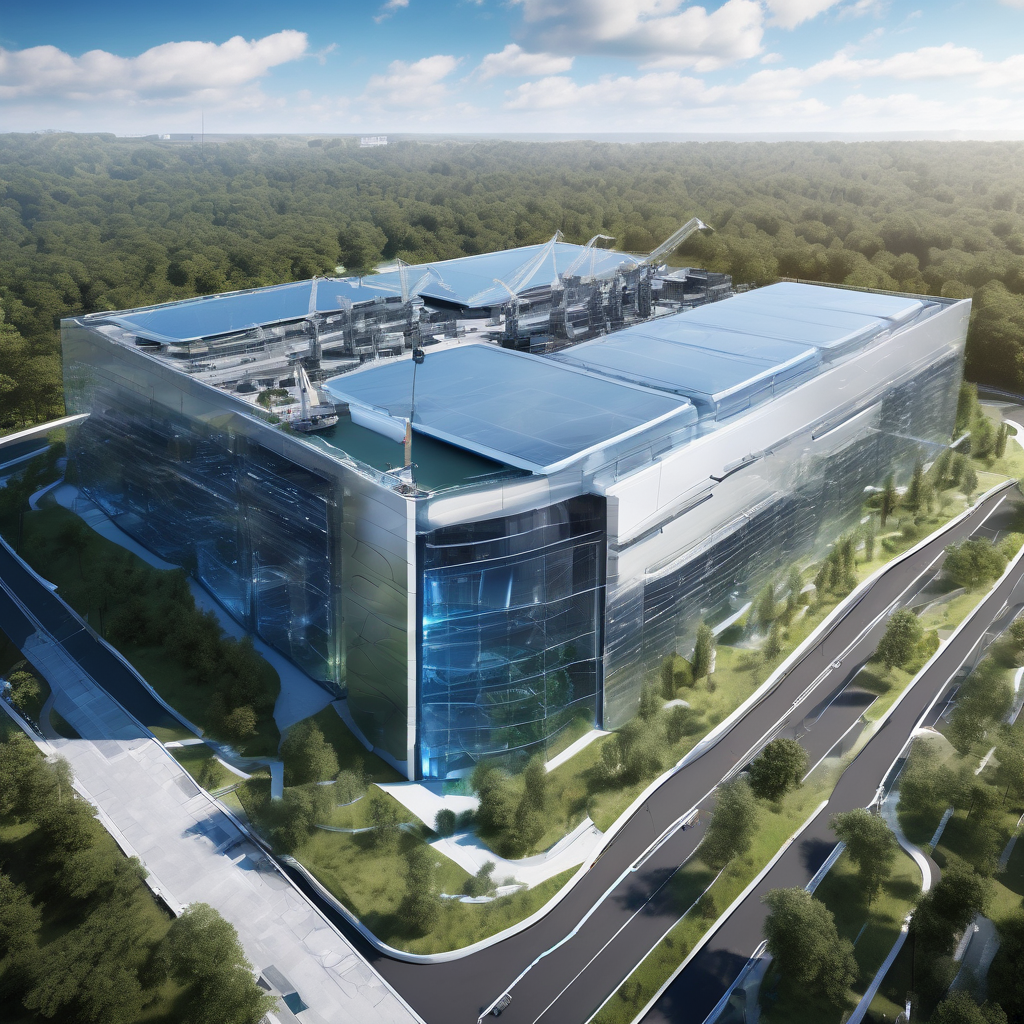
In the rapidly changing digital marketing realm, generative AI has transformed from a novelty to a necessity. As brands strive to personalize content at scale and optimize campaigns in real time, AI tools powered by advanced language models are reshaping strategies. From automating ad copy to predicting consumer behavior, these technologies promise efficiency gains that could redefine industry standards. Yet, with swift adoption come concerns about ethics, accuracy, and workflow integration. Recent data underscores this momentum. McKinsey’s 2025 Global AI Survey reveals organizations using AI for marketing achieve up to 20% higher revenue growth than non-users. Similarly, Social Media Examiner’s 2025 AI Marketing Report, drawing from over 730 marketers, finds that 68% use generative AI to streamline content creation and increase output, highlighting AI’s transformative role. **The Rise of AI-Powered Content Creation** Leading tools like Jasper and Copy. ai generate blog posts, social media captions, and email campaigns with minimal human input. Jasper, for instance, employs natural language processing to produce SEO-optimized content, halving production times, according to HubSpot. Tools like Writesonic integrate seamlessly with platforms such as WordPress for efficient content deployment. Beyond text, visual AI tools like Adobe Firefly and Midjourney enable marketers to create customized images and videos. Openfabric AI notes that brands increasingly use hyperpersonalized AI-generated visuals tailored to individual preferences via large language models (LLMs). **Personalization at Scale: The New Marketing Frontier** Hyper-personalization is a dominant trend in 2025, powered by tools analyzing vast datasets to deliver targeted experiences. Microsoft highlights AI’s capability to generate dynamic ad variations; for example, Google’s Generative AI Platform (featuring PaLM 2) enables personalized shopping experiences, with expanded e-commerce updates extending into 2025. In performance marketing, generative AI optimizes campaigns in real time; Funnel. io details how automated content and personalization enhance ROI. HubSpot’s AI features help marketers segment audiences precisely, predict behaviors using historical data, and craft tailored messages that boost engagement rates by up to 30%, according to Social Media Examiner. **SEO and Search in the AI Era** As search engines evolve, generative AI's role in visibility grows. SEO. com forecasts that ranking in AI-driven summaries from ChatGPT and Gemini will be crucial. Emerging techniques like Generative Engine Optimization (GEO)—highlighted by The ANA—show brands like HubSpot adapting content for AI-based search rankings. Tools such as Surfer SEO combine generative AI to optimize content for traditional and AI searches. WordStream warns ignoring these shifts risks a 40% decline in organic traffic. Marketers now prioritize structured data and authoritative sources to influence AI responses, as advised by Smart Insights. **Automation and Workflow Efficiency** Generative AI excels at automating repetitive tasks. Zapier’s AI integrations connect marketing tools to generate reports and automate email sequences. The Economic Times lists top AI tools like Grammarly and Canva Magic Studio, which revolutionize content editing and video production in 2025. Airstrike Marketing highlights essential tools for personalization and engagement. McKinsey reports 45% of companies employ AI agents for marketing automation, reducing manual labor and enabling teams to focus on strategic initiatives. **Ethical Considerations and Challenges** Despite enthusiasm, ethical concerns persist. Harvard emphasizes that unchecked AI marketing risks amplifying biases, prompting regulatory scrutiny on data privacy.
Transparency is vital; Mondelez International’s use of generative AI to cut marketing costs by 30-50% illustrates efficiency gains that must be balanced with accountability, as noted by Legal Era-Legal Media Group. Marketers are urged to audit AI outputs to maintain accuracy and preserve trust. **Multimodal AI and Future Innovations** Looking forward, multimodal AI—integrating text, images, and video—is set to dominate. Clustox discusses trends like autonomous AI agents and multimodal systems for 2026, with effects already visible in 2025 marketing. EIMT explores hyper-personalization and sustainability in generative AI. Microsoft’s March 2025 blog identifies three key trends: enhanced creativity, improved data insights, and integrated advertising. Meta’s Generative Ads Model (GEM), as shared by Open Source Software News, accelerates ad recommendations, promising faster innovation. **Case Studies from Leading Brands** Real-world examples demonstrate AI’s impact. Amazon’s generative AI for product descriptions, evolving into advanced seller tools, was shared by Mukul Sharma in 2023. WPP’s ‘Generative Store, ’ a collaboration with Google, supports brand ranking on AI platforms like ChatGPT, as reported by Trishla Ostwal. HubSpot integrates AI-driven chatbots for lead generation. Marketer Milk lists 26 top AI marketing tools used by brands like Nike for rapid growth, combining analytics and creative generation. **Investment and Adoption Strategies** To remain competitive, companies heavily invest in AI. Betheanswer. online profiles leading AI digital marketing firms emphasizing automation and personalized strategies. CIOs are advised to prepare for trends such as explainable AI (XAI), per Clustox. Training and pilot programs remain key; Social Media Examiner recommends beginning small, measuring metrics like conversion rates, and blending technology with human oversight to maximize benefits. **Navigating Regulatory and Market Shifts** Regulatory frameworks tighten as AI use expands. Compliance with laws like GDPR is mandatory. Harvard stresses ethical AI to advance business without alienating customers. Market conversations on platforms like X reflect cautious optimism about tools like Google’s AI meta descriptions and TikTok’s luxury marketing transformations, underscoring the need for adaptability. **Emerging Tools and Vendor Landscape** New entrants disrupt the AI marketing space. Product Hunt highlights MeDo for minimum viable product creation, demonstrating AI's broad applications. Rip Griffin Digital Marketing reports updates such as OpenAI’s in-chat purchasing, advancing e-commerce integration. Google and Meta lead with tools embedding AI into everyday marketing. According to App Economy Insights, generative AI’s cross-industry potential is being realized in 2025. **The Road Ahead for AI in Marketing** As 2025 unfolds, combining AI with emerging technologies like augmented reality promises further personalization. McKinsey projects a 25% rise in AI marketing budgets. Ultimately, success depends on strategic AI implementation. Brands that thoughtfully harness generative AI will lead by transforming data into compelling narratives that captivate audiences.
How Generative AI is Revolutionizing Digital Marketing in 2025


On November 12, 2025, the AI industry saw major investment and growth as Anthropic and Microsoft announced ambitious plans to build new AI computing infrastructure in the U.S. Anthropic, known for its Claude chatbot, unveiled a $50 billion investment to develop advanced data centers in Texas and New York, partnering with UK-based Fluidstack.

A few years ago, top hotel salespeople had one key skill: they could intuitively read their guests.

The rapid transition to remote work has markedly accelerated the adoption of AI-powered video conferencing platforms across numerous industries.

The emergence of artificial intelligence (AI) is profoundly transforming search engine optimization (SEO), changing how marketers approach online visibility and content strategies.

With the rapidly increasing volume of online video content, the need for efficient methods to consume and comprehend this information has never been more urgent.

Microsoft has announced a major expansion of its Azure AI platform, introducing a range of new tools designed to enhance machine learning and data analytics capabilities.

When considering applied AI in business, there are many approaches: identifying market opportunities, solving customer pain points, impressing stakeholders, or forecasting future trends—where thought leadership plays a role.
Launch your AI-powered team to automate Marketing, Sales & Growth

and get clients on autopilot — from social media and search engines. No ads needed
Begin getting your first leads today